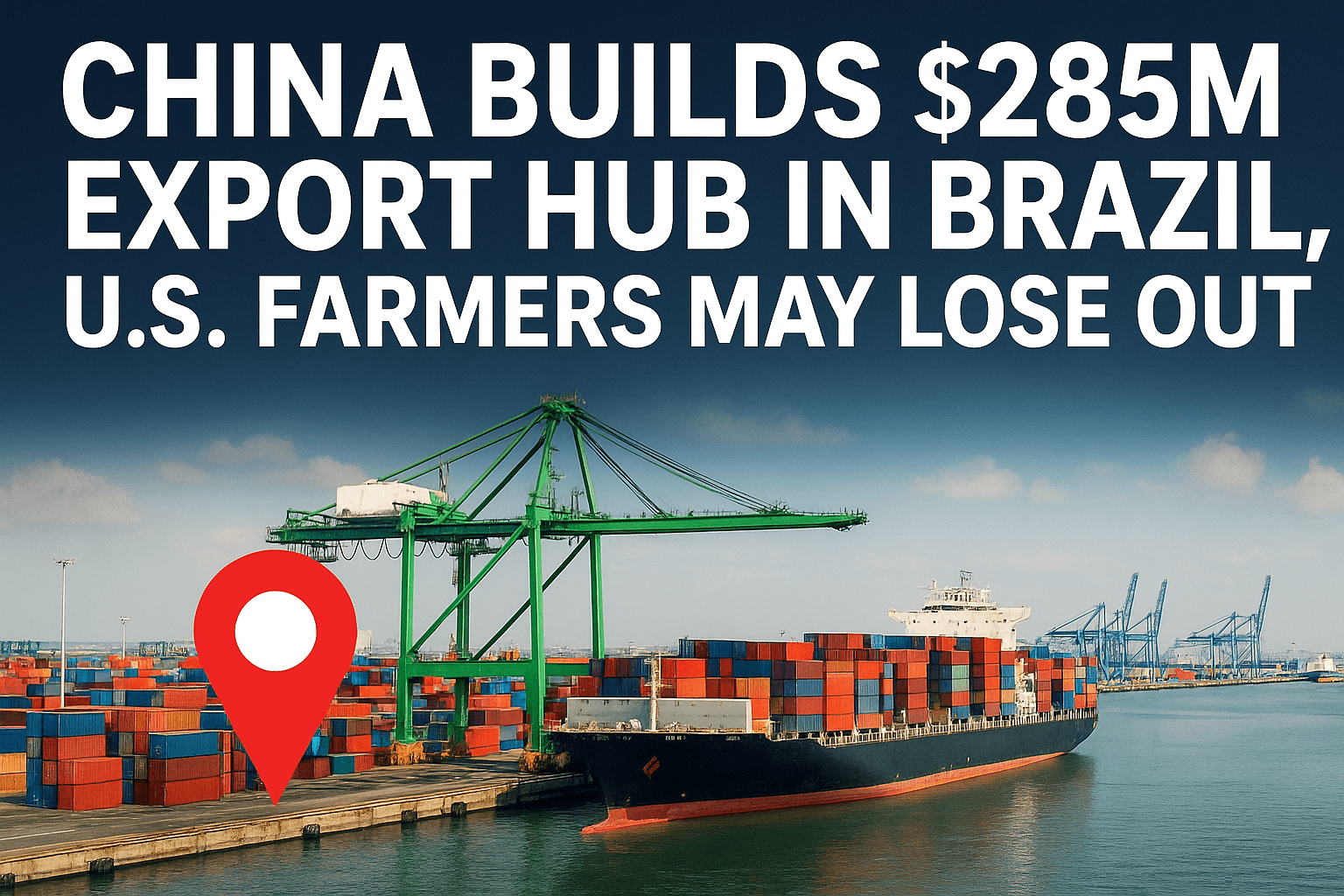“China Builds $285 Million Export Hub in Brazil, U.S. Farmers Face Major Losses”

China Develops $285 Million Export Facility in Brazil, U.S. Farmers Could Lose Out
China is making a significant move in South America. A Chinese state-owned firm, Cofco International, is developing a massive export terminal at the Port of Santos in Brazil. The cost is approximately $285 million, and the development will revolutionize the way global food trade is done.
Why This Matters
The Santos Port is Brazil’s largest. Currently, it exports the majority of the country’s soybeans and corn, but the outdated infrastructure creates delays. China will now have a quicker and more efficient route to receive crops directly from Brazil with this new terminal.
Once the project is finished in 2026, the capacity of the terminal will increase from 4.5 million metric tons to 14 million metric tons annually. That is a huge amount that Brazil can then export directly to China.
Impact on the United States
U.S. farmers have sold enormous quantities of soybeans and other commodities to China for years. However, in recent years, China has been purchasing more from Brazil and fewer from the U.S. It is now easier for China to increasingly depend on Brazil with this new hub.
As per trade reports, Brazil’s soybean exports to China have increased and imports from the U.S. have reduced. With the new terminal being operational, this trend will become more established. U.S. farmers are expected to lose billions of dollars in sales for the next couple of years, experts believe.
Bigger Picture
China’s investment in Brazil is not solely a matter of a single port. It is all connected to a master plan to establish supply chains globally. By having more control over food sources, China is less reliant on the U.S. and others.
Conclusion
This $285 million expansion in Brazil seems like a domestic improvement, but it has worldwide implications. For China, it guarantees food stocks. For Brazil, it makes its position as an agricultural powerhouse more secure. For U.S. farmers, it might represent losing one of their largest clients.


